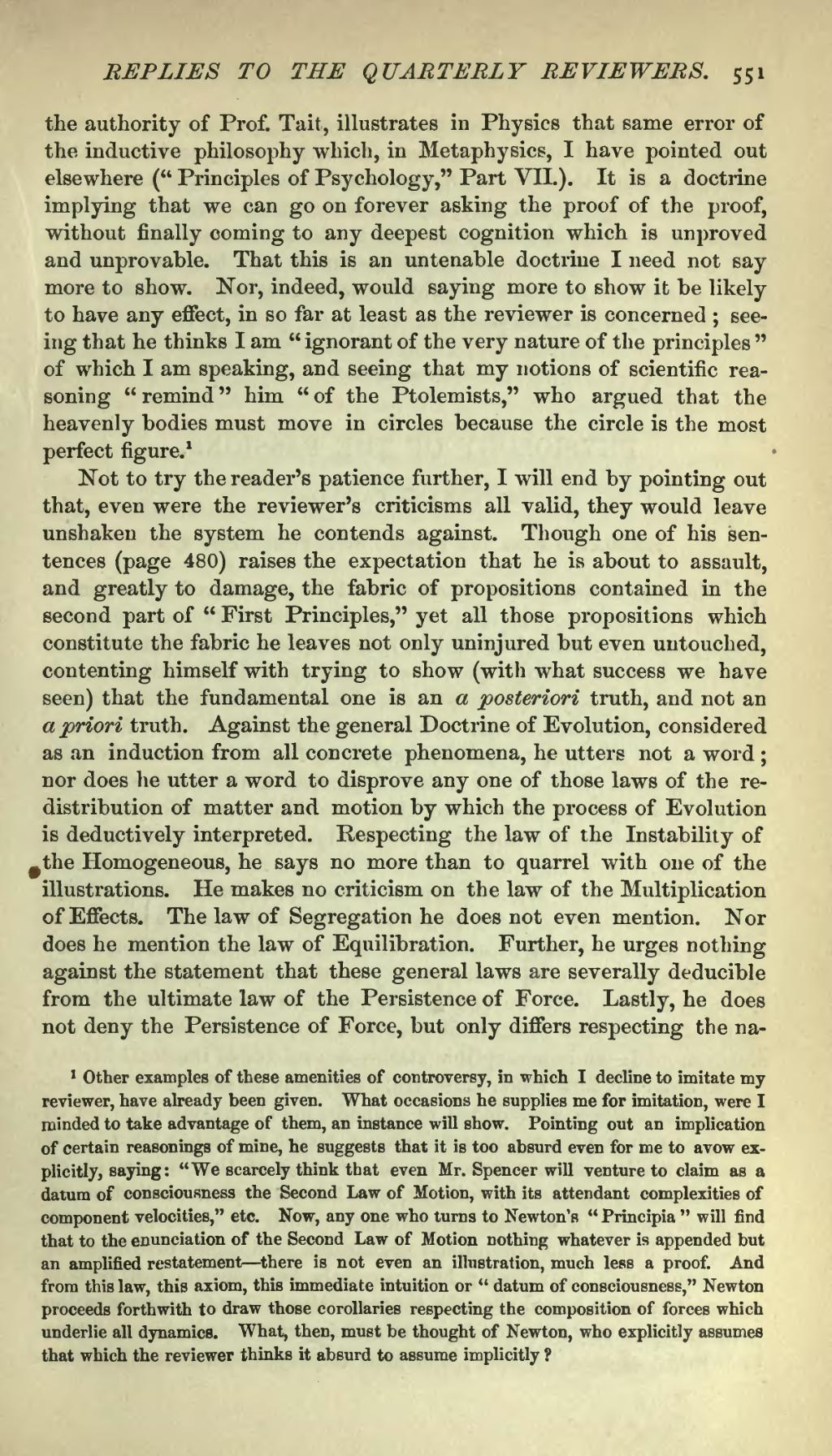the authority of Prof. Tait, illustrates in Physics that same error of the inductive philosophy which, in Metaphysics, I have pointed out elsewhere ("Principles of Psychology," Part VII.). It is a doctrine implying that we can go on forever asking the proof of the proof, without finally coming to any deepest cognition which is unproved and unprovable. That this is an untenable doctrine I need not say more to show. Nor, indeed, would saying more to show it be likely to have any effect, in so far at least as the reviewer is concerned; seeing that he thinks I am "ignorant of the very nature of the principles" of which I am speaking, and seeing that my notions of scientific reasoning "remind" him "of the Ptolemists," who argued that the heavenly bodies must move in circles because the circle is the most perfect figure.[1]
Not to try the reader's patience further, I will end by pointing out that, even were the reviewer's criticisms all valid, they would leave unshaken the system he contends against. Though one of his sentences (page 480) raises the expectation that he is about to assault, and greatly to damage, the fabric of propositions contained in the second part of "First Principles," yet all those propositions which constitute the fabric he leaves not only uninjured but even untouched, contenting himself with trying to show (with what success we have seen) that the fundamental one is an a posteriori truth, and not an a priori truth. Against the general Doctrine of Evolution, considered as an induction from all concrete phenomena, he utters not a word; nor does he utter a word to disprove any one of those laws of the redistribution of matter and motion by which the process of Evolution is deductively interpreted. Respecting the law of the Instability of the Homogeneous, he says no more than to quarrel with one of the illustrations. He makes no criticism on the law of the Multiplication of Effects. The law of Segregation he does not even mention. Nor does he mention the law of Equilibration. Further, he urges nothing against the statement that these general laws are severally deducible from the ultimate law of the Persistence of Force. Lastly, he does not deny the Persistence of Force, but only differs respecting the na-
- ↑ Other examples of these amenities of controversy, in which I decline to imitate my reviewer, have already been given. What occasions he supplies me for imitation, were I minded to take advantage of them, an instance will show. Pointing out an implication of certain reasonings of mine, he suggests that it is too absurd even for me to avow explicitly, saying: "We scarcely think that even Mr. Spencer will venture to claim as a datum of consciousness the Second Law of Motion, with its attendant complexities of component velocities," etc. Now, any one who turns to Newton's "Principia" will find that to the enunciation of the Second Law of Motion nothing whatever is appended but an amplified restatement there is not even an illustration, much less a proof. And from this law, this axiom, this immediate intuition or "datum of consciousness," Newton proceeds forthwith to draw those corollaries respecting the composition of forces which underlie all dynamics. What, then, must be thought of Newton, who explicitly assumes that which the reviewer thinks it absurd to assume implicitly?

